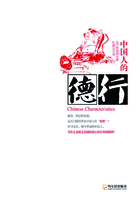Though the visit was quite incognito, an enormous military staff which had been poured into the town might have led the thoughtful to suspect the Kaiser's presence, even if it had not been announced in the largest type in the papers, and marchings and counter-marchings of troops and sudden bursts of national airs proclaimed the august presence. He held an informal review of certain Bavarian troops not out for manoeuvres in the morning, visited the sculpture gallery and pinacothek in the afternoon, and when Hermann and Michael went up to the theatre they found rows of soldiers drawn up, and inside unusual decorations over a section of stalls which had been removed and was converted into an enormous box.
This was in the centre of the first tier, nearly at right angles to where they sat, in the front row of the same tier; and when, with military punctuality, the procession of uniforms, headed by the Emperor, filed in, the whole of the crowded house stood up and broke into a roar of recognition and loyalty.
For a minute, or perhaps more, the Emperor stood facing the house with his hand raised in salute, a figure the uprightness of which made him look tall. His brilliant uniform was ablaze with decorations; he seemed every inch a soldier and a leader of men.
For that minute he stood looking neither to the right nor left, stern and almost frowning, with no shadow of a smile playing on the tightly-drawn lips, above which his moustache was brushed upwards in two stiff protuberances towards his eyes. He was there just then not to see, but to be seen, his incognito was momentarily in abeyance, and he stood forth the supreme head of his people, the All-highest War Lord, who had come that day from the field, to which he would return across half Germany tomorrow. It was an impressive and dignified moment, and Michael heard Falbe say to himself: "Kaiserlich! Kaiserlich!"Then it was over. The Emperor sat down, beckoned to two of his officers, who had stood in a group far at the back of the box, to join him, and with one on each side he looked about the house and chatted to them. He had taken out his opera-glass, which he adjusted, using his right hand only, and looked this way and that, as if, incognito again, he was looking for friends in the house.
Once Michael thought that he looked rather long and fixedly in his direction, and then, putting down his glass, he said something to one of the officers, this time clearly pointing towards Michael.
Then he gave some signal, just raising his hand towards the orchestra, and immediately the lights were put down, the whole house plunged in darkness, except where the lamps in the sunk orchestra faintly illuminated the base of the curtain, and the first longing, unsatisfied notes of the prelude began.
The next hour passed for Michael in one unbroken mood of absorption. The supreme moment of knowing the music intimately and of never having seen the opera before was his, and all that he had dreamed of or imagined as to the possibilities of music was flooded and drowned in the thing itself. You could not say that it was more gigantic than The Ring, more human than the Meistersingers, more emotional than Parsifal, but it was utterly and wholly different to anything else he had ever seen or conjectured. Falbe, he himself, the thronged and silent theatre, the Emperor, Munich, Germany, were all blotted out of his consciousness. He just watched, as if discarnate, the unrolling of the decrees of Fate which were to bring so simple and overpowering a tragedy on the two who drained the love-potion together. And at the end he fell back in his seat, feeling thrilled and tired, exhilarated and exhausted.
"Oh, Hermann," he said, "what years I've wasted!"Falbe laughed.
"You've wasted more than you know yet," he said. "Hallo!"A very resplendent officer had come clanking down the gangway next them. He put his heels together and bowed.
"Lord Comber, I think?" he said in excellent English.
Michael roused himself.
"Yes?" he said.
"His Imperial Majesty has done me the honour to desire you to come and speak to him," he said.
"Now?" said Michael.
"If you will be so good," and he stood aside for Michael to pass up the stairs in front of him.
In the wide corridor behind he joined him again.
"Allow me to introduce myself as Count von Bergmann," he said, "and one of His Majesty's aides-de-camp. The Kaiser always speaks with great pleasure of the visits he has paid to your father, and he saw you immediately he came into the theatre. If you will permit me, Iwould advise you to bow, but not very low, respecting His Majesty's incognito, to seat yourself as soon as he desires it, and to remain till he gives you some speech of dismissal. Forgive me for going in front of you here. I have to introduce you to His Majesty's presence."Michael followed him down the steps to the front of the box.
"Lord Comber, All-highest," he said, and instantly stood back.
The Emperor rose and held out his hand, and Michael, bowing over it as he took it, felt himself seized in the famous grip of steel, of which its owner as well as its recipient was so conscious.
"I am much pleased to see you, Lord Comber," said he. "I could not resist the pleasure of a little chat with you about our beloved England. And your excellent father, how is he?"He indicated a chair to Michael, who, as advised, instantly took it, though the Emperor remained a moment longer standing.
"I left him in very good health, Your Majesty," said Michael.














